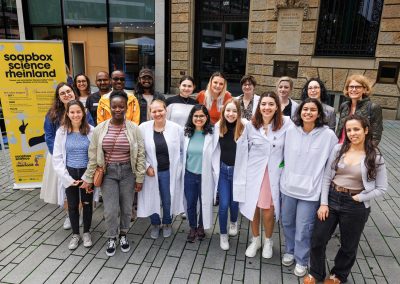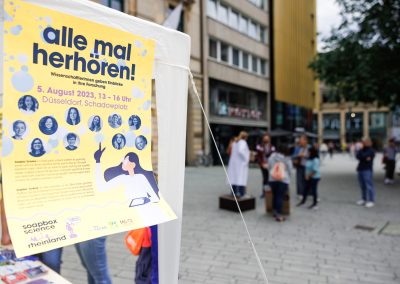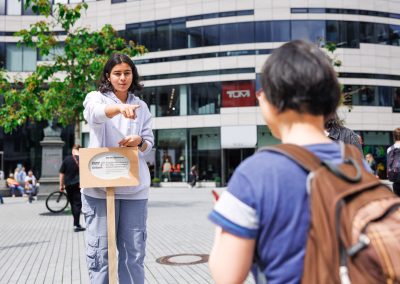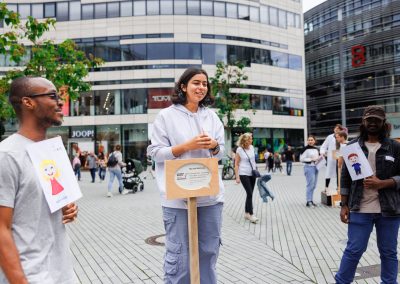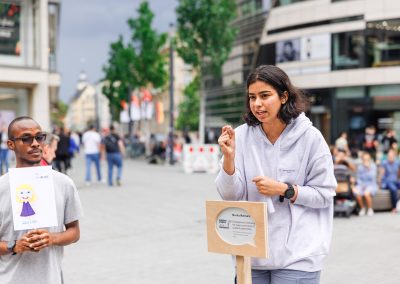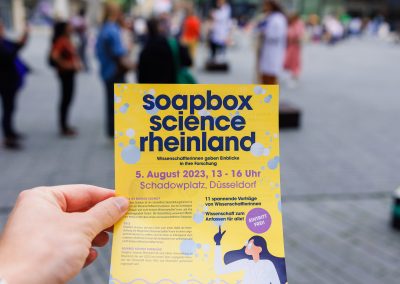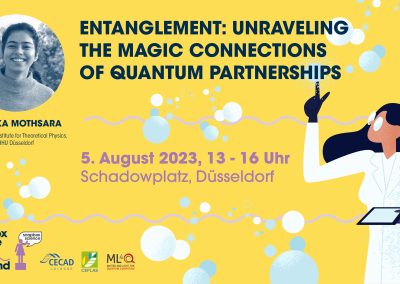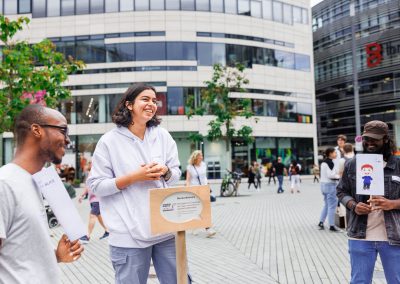Soapbox Science challenges rain in Düsseldorf
On August 5th, eleven female scientists gathered at Schadowplatz in Düsseldorf to engage the public with their scientific work using the attractive soapbox science format. Standing on soapboxes and employing simple props, they presented their research to passersby in a fun and informal manner.
Monika, who recently joined ML4Q as a PhD student in the group of Dagmar Bruss and Gláucia Murta, explained the intriguing concept of “spooky action at a distance” that entanglement introduces to the world of quantum particles. Monika employed the fictional characters Alice and Bob, beloved by physicists, who attended separate parties in distant galaxies, with their outfit colors becoming entangled – an illustrative example.
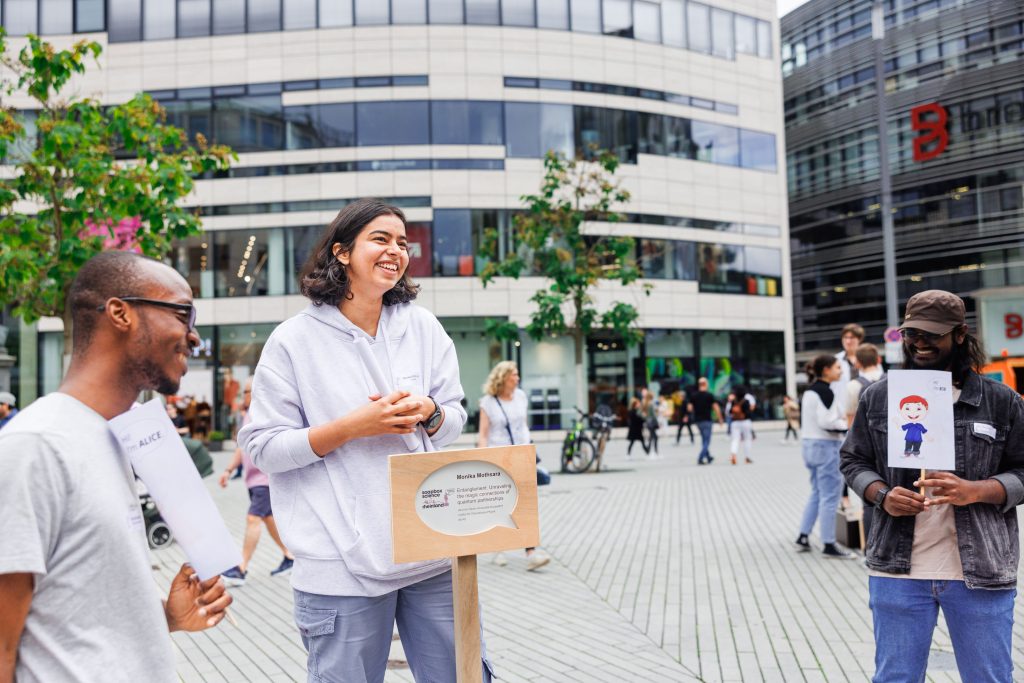
Throughout a cloudy Saturday afternoon, the speeches took place through three rounds each extending for an hour. Despite the rain challenging the latter half of the event, the public remained captivated. As the rain poured harder, speakers sought shelter beneath a tree at the square’s center, and the engaged audience followed suit.
Originally utilized for shipping dry goods like “soap,” a soapbox is a wooden crate. Its historical significance traces back to the 19th century, where it evolved into a platform for impromptu speeches by politicians, sparking informal political discussions in public spaces. The concept of soapbox science draws inspiration from this rich history, aiming to simplify and democratize scientific discourse.
Soapbox Science is a novel public outreach platform originally kicked off in London ten years ago and now taking place annually in many cities around the world. Sixty cities applied the format to prompt women and non-binary scientists and the science they do so far. Soapbox has two aims: to bring opportunity to meet and interact with scientists in places you wouldn’t normally expect, and to increase the visibility of women in science.
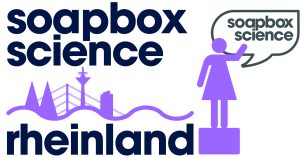
Soapbox Science Rheinland is a local event in Germany organized since 2020 by a team of enthusiastic people from universities in the Rheinland-area: University of Bonn, Cologne and Düsseldorf.
